Background
The police institution has often been accused of abuse of police authority. In the ideal, the police institution is expected to develop a good rapport with citizens based on trust, humane actions, and respect for human rights. The Ferguson Missouri Police Station is one of the most friendly and efficient in handling public complaints. The station has professional and qualified law enforcers who respect the rule of law in restoring law and order. However, there are few incidences where the Ferguson Missouri station has come under attack. For instance, there was an instance where a police officer was accused of using excessive force in restraining a young African American from the Ferguson area.
A black child was shot by a police officer in Ferguson, Missouri, and the police chief neglected to involve the local community, religious organizations, and politicians in the information release or investigation of the incident. This incident and others of similar magnitude need to be managed through a series of police station reforms. Thus, this reflective treatise attempts to explicitly review the most appropriate police management strategies that should be integrated at the Ferguson Missouri Police Station to avoid such incidences in the future.
Problem statement
Previously, the leadership feedback channel was depicted as a linear process in which a supervisor directly conveyed messages to the subordinates and tracks their performance. In the twenty-first century, the feedback modes are interactions of transaction processes where both the supervisor and the subordinates influence each other as they interrelate within the realms of organizational cultural context. In addition, the abusive supervisory theory limits the feedback system to the opinion of a supervisor, which might be very irrelevant and is prone to the exploitation of power (Peak 23). These feedback systems directly influence the subordinate performance, behavior, emotions, job satisfaction, and achievement.
The need for leaders’ feedback efficiency at the Ferguson Missouri Police Station necessitates more research in the area of feedback systems and their impacts on organizational behavior within the US law enforcement agency. It is for this reason that the research will attempt to provide a framework for properly managing the incidences reported at the police station to minimize public dissatisfaction.
The research aims and objectives
Taking the role and importance of different leadership feedback styles into consideration, this particular research study aims to analyze the degree to which different leadership feedback styles influence the quality of police activities at the Ferguson Missouri Police Station from a management perspective. The research study also has particular sub-objectives that are mentioned below:
- To analyze the importance of different leadership feedback styles as a proactive remedy for public dissatisfaction with the Ferguson Missouri Police Station.
- To investigate the impact of different leadership feedback styles on the quality of service delivery and stakeholder involvement in policing the Ferguson Missouri region.
Research questions
- How effective are different leadership feedback styles in the orientation of public satisfaction in the management of the Ferguson Missouri Police Station?
- What is the relevance of management efficiency in service delivery at the Ferguson Missouri Police Station?
Significance of the study
The effectiveness of police station management determines the level of performance as perceived by the other stakeholders, who would want to be involved at every level. This research will assist the Ferguson Missouri Police Station to implement effective leadership feedback that promotes efficiency and management of operations. It will be a compilation of best leadership feedback practices among police stations with effective law enforcement strategies.
Literature review
Typology of abuse of authority
Carter is critical and objective in analyzing types of abuse of authority (Peak 29). The first typology identified is the use of excessive force or physical abuse of the citizen when making an arrest. Although the policing policy allows for use of minimal force when arresting a resisting citizen, some police officers take advantage of this to torture citizens and cause major bodily harm or even death. Several instances have been reported where police officers deliberately kill an unarmed citizen and justify the same on the protection of their life. Though the U.S Supreme Court has reaffirmed the fact that using bullets on a nonviolent and unarmed suspect is against the Fourth Amendment, Carter states that some rogue officers continue with this practice. The perpetrating officers of illegal shootings hide in the police authority (Peak 31).
Carter discusses the psychological and verbal abuse that some officers inflict on the public in their line of duty. These officers deliberately antagonize the public while hiding in their oversight authority. For instance, the use of profane language on the citizen is classified by Carter as a psychological game aimed at insulting, degrading, and imposing unjust authority on their ‘subjects’. The use of profanity has several effects on the victim.
To begin with, it may lead to polarization of a very minor issue and result in lost confidence in the police as an independent third party in a conflict. Besides, the profane language is likely to cause psychological harm to the victim or their family. In addition, profane language among some police officers has led to irrational actions taken by the public as a coping mechanism to protect their self-esteem. However, Carter identifies response strategies for minimizing profanity among the police force through scrutiny of profanity complaints and police leadership banning its use in the public (Peak 39).
The third typology of police authority abuse identified by Carter is a violation of the rights of the citizens and legal process abuse. This typology occurs when some police officers interfere with the justice system through falsified arrests, harassment, and false imprisonment. For instance, a deliberate and illegal private property search, evidence implantation, and falsified testimony may distort the course of justice for an innocent victim.
Besides, hustling the public or business executives for information and monetary gains is another typology of policy authority abuse. Carter is categorical in identifying the role of supervisors in minimizing such incidences. The police supervisors should be objective and rational in micro-managing junior police officers to ensure that all arrests fall within the probable course standards of the police institution. Also, there should be standardized criteria for making arrests (Peak 19).
Significance of lieutenant police managing
The part of principles in an effective organizational behavior model encompasses laid down rules to enable a police station to be more efficient. This is in the form of a well-organized hierarchy of officers from management with administrative roles to service-providing officers. Police station managers are empowered by the constitution to perform the role of prefects and offer leadership solutions upon consultation with one another.
To control group behavior, desirable leadership attributes are necessary. Therefore, “actions are most often attributed to four causes: effort and ability (both internal and dispositional causes), luck, and task difficulty (both external and situational causes)” (Beggs and Davies 22). Whenever there is a strong professional relationship nurtured on the values of appreciation and respect within a police station’s communication model, incidences of mismanagement of duties will not arise.
Effective police station behavior system is acquired through creative inspiration in communication systems that senior and junior officers use in encoding and decoding information from other stakeholders. When successfully carried out, redundancy and emotional strains are kept at bay, as constant interaction is a means of boosting confidence and personality which is a recipe for good law enforcement (Beggs and Davies 28). This is summarized in the diagram below.
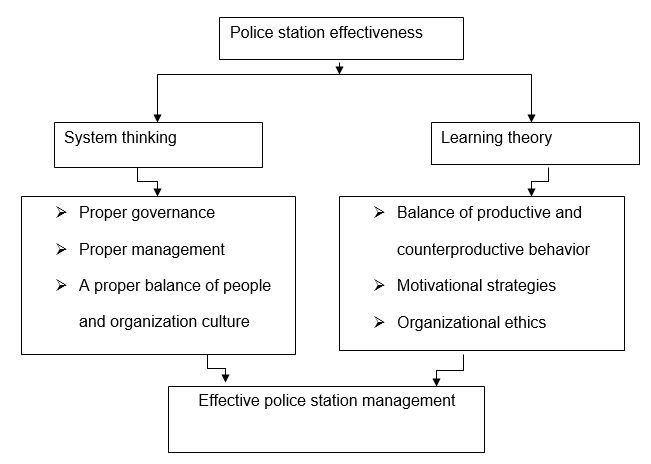
From the above literature review, it is important to establish the most appropriate police management strategies at the Ferguson Missouri Police Station to ensure that law enforcement is within the confines of the constitution and commands support from the public. The next part of the paper will give the most appropriate solutions.
Methodology
Research approach
This research was conducted using a research survey study approach. The researcher chose a qualitative approach rather than quantitative because the scope of the research is focused, subjective, dynamic, and discovery-oriented. The qualitative approach is best suited to gain proper insight into the situation of the case study. Besides, qualitative data analysis is more detailed than a quantitative one. This approach will create room for further analysis using different and divergent tools for checking the degree of error and assumption limits. The researcher used direct interviews with open-ended and close-ended questionnaires to target respondents.
Data collection
Data collected through one-on-one interviews were scrutinized. Each question asked was comprehensive to ensure that respondents had an opportunity to give deep answers that provide an insight into the research problem. Transcription was then done to each of the recorded interview processes. For each response from each participant, the recorded transcripts were perused to coin relevant and most appropriate reactions. Factually, instances of divergent or convergent opinions by one or more respondents were marked appropriately.
Justification of the research approach
The use of the qualitative research approach will facilitate understanding the individual attributes that contribute to the poor public perception of the Ferguson Missouri Police Station. Attributes of the subjects under study were qualitatively studied through observation. This allowed the researcher to enter observed qualitative behavior indicative of the current situation and expectations in the future. These methodologies helped in the identification of statistical patterns in the data collected using questionnaires and interviews.
Findings and Analysis
This chapter reviews the findings of the research and offers a comprehensive analysis within the scope of the study. The response rate was 100%. All the respondents filled their questionnaire survey forms on time. This is summarized in the tables below.
Quantitative analysis
Answer to close-ended questions
- Do you think the current Lieutenant Police managing strategies are effective at the Ferguson Missouri Police Station?
- Strongly Disagree
- Disagree
- Slightly Disagree
- Neither Disagree nor Agree
- Slightly Agree
- Agree
- Strongly Agree
- Does the Ferguson Missouri Police Station have a stakeholder consultation system in managing its operations?
- Strongly Disagree
- Disagree
- Slightly Disagree
- Neither Disagree nor Agree
- Slightly Agree
- Agree
- Strongly Agree
- Is the primary focus of the Ferguson Missouri Police Station towards efficiency effective in your opinion?
- Strongly Disagree
- Disagree
- Slightly Disagree
- Neither Disagree nor Agree
- Slightly Agree
- Agree
- Strongly Agree
- How do you grade the performance of the Ferguson Missouri Police Station?
- Very poor
- Poor
- Slightly poor
- Neither good nor poor
- Slightly good
- Good
- Very good
- Is it factual that the challenges or successes of these management styles are based on the strategy of implementation?
- Strongly Disagree
- Disagree
- Slightly Disagree
- Neither Disagree nor Agree
- Slightly Agree
- Agree
- Strongly Agree
- What do you think of the lieutenant police managing styles in terms of their effectiveness at the Ferguson Missouri Police Station?
- Do you agree with the current police responses to conflicting incidences, now that you are one of the stakeholders in the US law enforcement agency?
- Strongly Disagree
- Disagree
- Slightly Disagree
- Neither Disagree nor Agree
- Slightly Agree
- Agree
- Strongly Agree
- To what extent, are you knowledgeable or aware of the existence of other police stations with better lieutenant police managing strategies than the Ferguson Missouri Police Station? I am aware of such police stations.
- Strongly Disagree
- Disagree
- Slightly Disagree
- Neither Disagree nor Agree
- Slightly Agree
- Agree
- Strongly Agree
- What can be done to make improvements in the current lieutenant police managing strategies that the Ferguson Missouri Police Station practices?
Summary of the responses
Answer to other closed-ended questions.
Analysis of each question
- Do you think the current Lieutenant Police managing strategies are effective at the Ferguson Missouri Police Station?
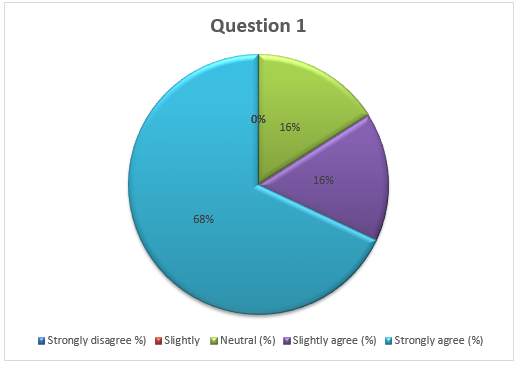
From the above pie chart, it is apparent that more than 70% of the respondents acknowledged the effective use of different lieutenant police managing strategies at the Ferguson Missouri Police Station. However, 30% of the respondents disagreed.
- Does the Ferguson Missouri Police Station have a stakeholder consultation system in managing its operations?
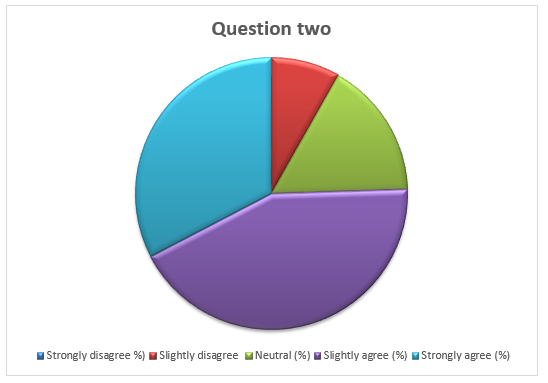
In answering question two, 80% of the respondents acknowledged that the station has a stakeholder consultation system. However, 9 respondents were indifferent since the majority of the respondents noted that the station rarely uses the system.
- Is the primary focus of the Ferguson Missouri Police Station towards efficiency is effective in your opinion?
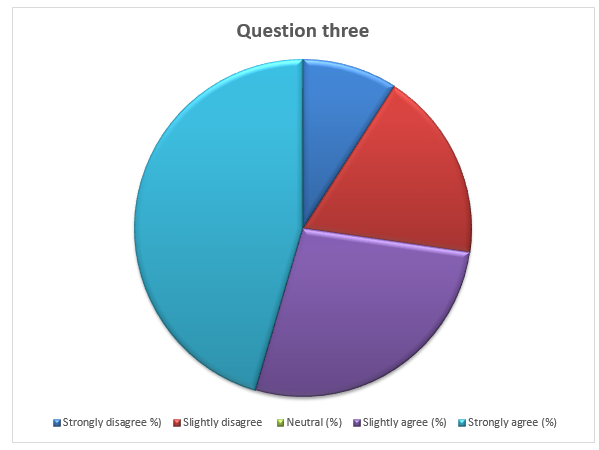
70% of the respondents agreed that the primary focus of the station is towards efficiency and is currently effective. However, 30% disagreed.
- How do you grade the performance of the Ferguson Missouri Police Station?
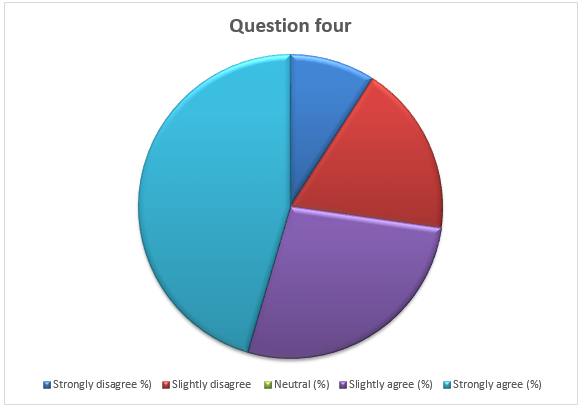
68% of the respondents graded the station as effective in their lieutenant managing strategies. However, 28% percent disagreed.
- Is it factual that the challenges or successes of these management styles are based on the strategy of implementation?
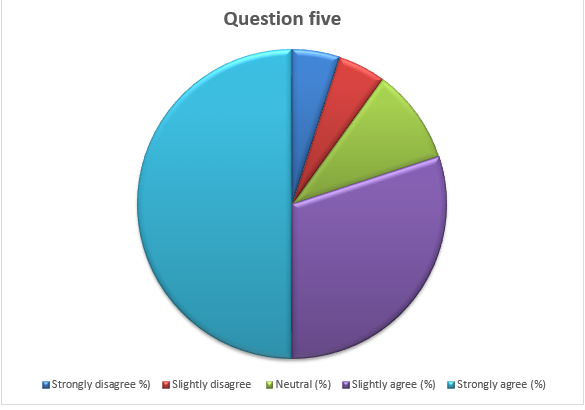
76% of the respondents agreed that the successes of the current lieutenant managing styles are based on the strategy of implementation. However, 26% disagreed.
- What do you think of the lieutenant police managing styles in terms of their effectiveness at the Ferguson Missouri Police Station?
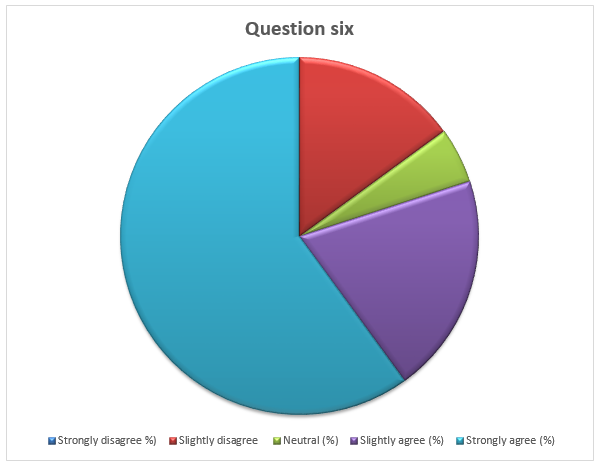
69% of the respondents described the station as very effective. However, 30% of the respondents had a divergent opinion on the same concerning how the lieutenant managing strategies influence effectiveness.
- Do you agree with the current police responses to conflicting incidences, now that you are one of the stakeholders in the US law enforcement agency?
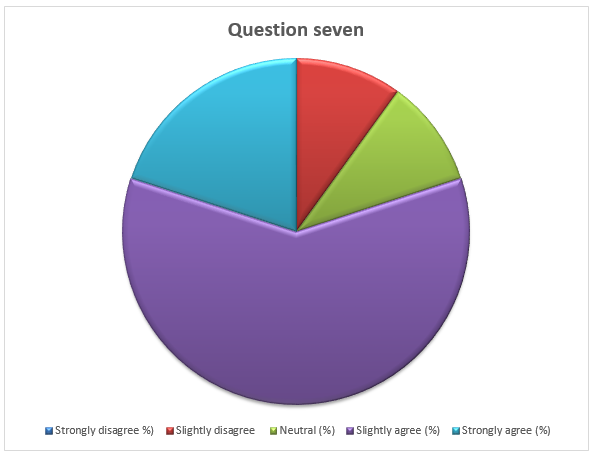
82% of the respondents slightly agreed with the current response to incidences at the station. Only 21% fully agreed with the current response.
- To what extent, are you knowledgeable or aware of the existence of other police stations with better lieutenant police managing strategies? I am aware of such police stations.
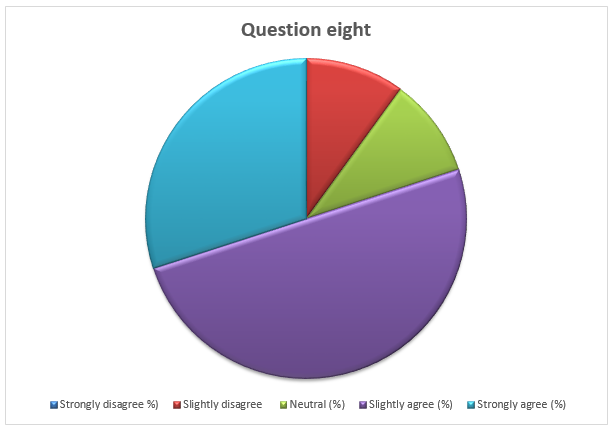
89% of the respondents agreed several neighboring police stations have effective lieutenant managing strategies and stakeholder consultation forums. This is a clear indication that the current mistrust between the Ferguson Missouri Police Station and the community can be resolved.
- What can be done to make improvements in the current lieutenant police managing strategies that the Ferguson Missouri Police Station practices?
There were several suggestions by the respondents on the best approaches to ensure efficiency in the lieutenant police managing at the Ferguson Missouri Police Station. The suggestions included stakeholder consultation, further training in public interaction, placing responsibility on arresting or investigating officers, involving the community in policing, and organizing partnership events with the community to boost trust and confidence (Gottschalk 38).
Discussion and conclusion
The twin pillar approach to ethical leadership combines moral managerial abilities with moral character. The combination of the two aspects is critical in building an ethical leadership reputation since leadership responsibility functions on moral codes, which promote proactive leadership. Furthermore, it is the team leader’s duty to provide guidance that aligns with stakeholders’ expectations. Therefore, the officer-in-charge of the Ferguson Missouri Police Station should roll out additional training programs for the junior officers to ensure that ethical conduct is at par with the expectations of the community (Beggs and Davies 57).
Besides, getting the support of the stakeholders would guarantee community satisfaction of the investigation results for different incidences (Gottschalk 47). Actually, exercising integrity is possible through setting good examples by conforming to the shared values of a team at the station. Therefore, there is a need for standardized criteria of service delivery to minimize unethical incidences at the Ferguson Missouri Police Station.
Works Cited
Beggs, John, and Hugh Davies. Police Misconduct, Complaints, and Public Regulation. Oxford: Oxford University Press, 2009. Print.
Gottschalk, Peter. Police management professional integrity in policing, New York, NY: Nova Science Publishers, 2010. Print.
Peak, Kenneth. Justice Administration: Police, Courts, and Corrections Management, Alabama: Prentice Hall, 2009. Print.
